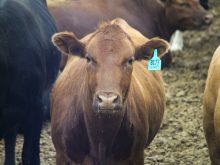China’s first strain of genetically modified corn is facing policy deadlock and may take years before it can be planted, says a Chinese researcher.
China gave the phytase corn safety approval in late 2009, and at the time scientists said they expected large-scale production could happen as early as 2012.
The GMO approval means the corn is safe to use as animal feed. But the strain also needs clearance as a new seed type under Chinese rules that apply to GMO and non-GMO alike.
Although this was no problem for GMO cotton, which does not enter the human food chain, the GMO corn has hit a problem because there is no regulation covering corn seed intended exclusively for animal feed production.
Read Also

Farming Smarter receives financial boost from Alberta government for potato research
Farming Smarter near Lethbridge got a boost to its research equipment, thanks to the Alberta government’s increase in funding for research associations.
“For the GMO corn, it is partly used for food. There is a disconnect with the regulations,” Chen Rumei, a researcher with the Biotechnology Research Institute of the Chinese Academy of Agricultural Sciences, told Reuters. Chen is a member of the research team that developed phytase corn.
A seed must undergo regional trials before it can go through China’s seed registration procedure, which may take three to five years, before commercial production.
“There is no detailed regulation regarding how the strain can be selected for regional trials,” Chen said.
Chen said phytase corn was designed to solve an environmental problem rather than for higher yields.
But seed approval depends on a seed’s ability to improve yields by at least three per cent, or in some areas up to eight per cent. The phytase corn was based on a high-yield seed, but makes no claim to improving yield. It helps pigs digest more phosphorus, enhancing growth and reducing pollution from animal waste by 30 per cent, said Chen. China is the world’s largest pig producer.
“We have to co-ordinate with government authorities… and if the policies can go through properly, we hope it could be planted commercially in the coming five years,” said Chen.
———
“FortheGMOcorn, itispartlyusedfor food.Thereisa disconnectwiththe regulations.”
CHEN RUMEI














